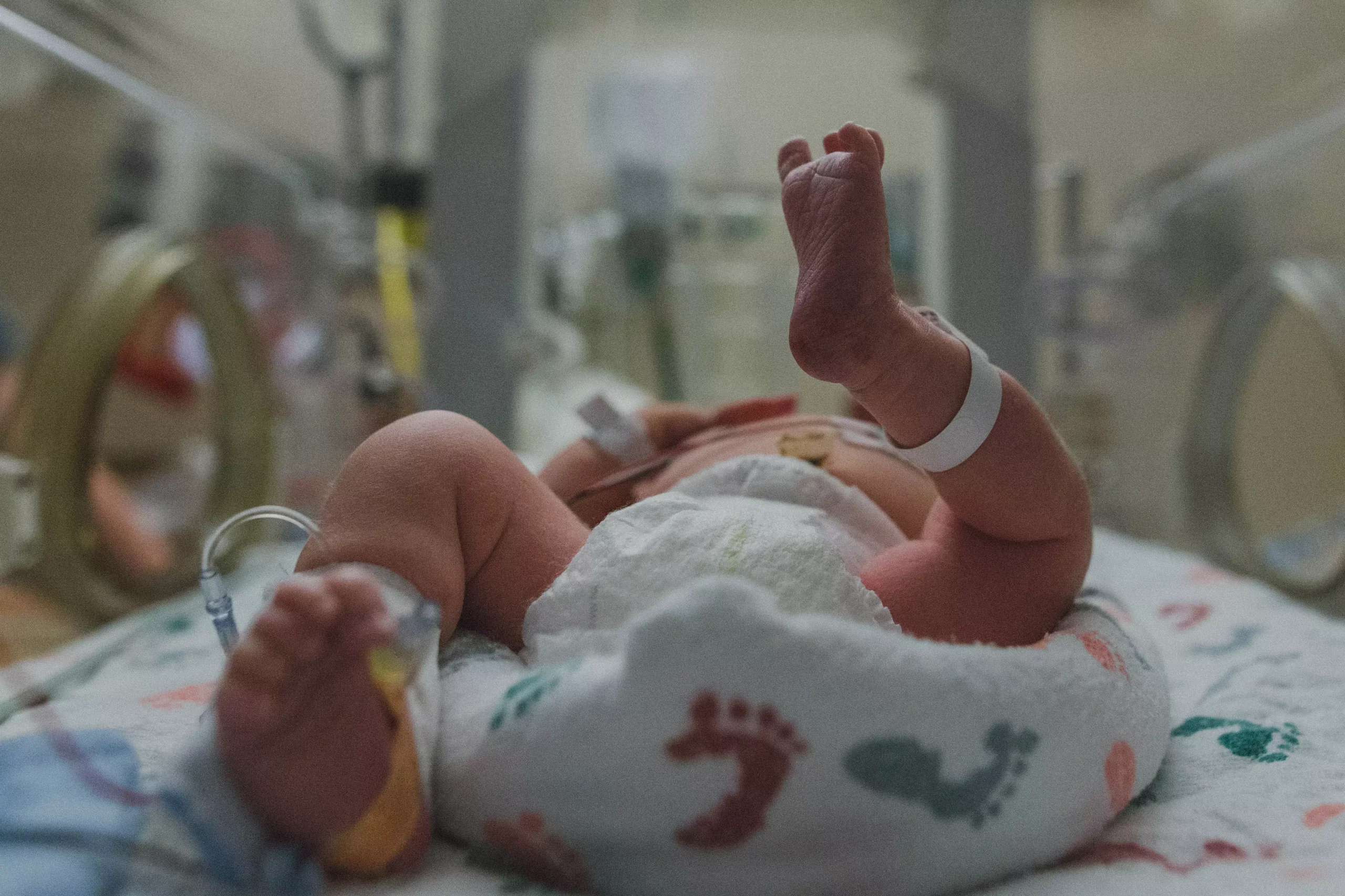Caffeine citrate in apnoea of prematurity
During the first few days of life, premature infants encounter problems with temperature regulation, acquisition of oral feeding skills, and the normal control of respiration.1 The resolution of apnoea and establishment of a normal respiratory pattern is a major developmental milestone for many premature infants.1
Apnoea of prematurity (AOP) is characterised by pauses in breathing lasting more than 20 seconds, or more than 10 seconds if accompanied by bradycardia and/or oxygen desaturation, in infants born before 37 weeks’ gestation.2,3
It is one of the most prevalent diagnoses in the Neonatal Intensive Care Unit (NICU), affecting nearly half of all infants born before 32 weeks’ gestation and almost all infants with a birth weight below 1kg.2,3 AOP arises due to the underdevelopment of the respiratory control mechanisms in premature infants, necessitating careful monitoring and management to support breathing and address associated complications.3
Did you know?
Caffeine is one of the most prescribed medications in NICUs. It reduces the frequency of apnoea, alleviates intermittent hypoxaemia, facilitates extubation from mechanical ventilation, and decreases the incidence of bronchopulmonary dysplasia (BPD) and patent ductus arteriosus (PDA) in preterm infants.4

European Consensus Guidelines recommends the use of caffeine routinely in infants <32 weeks of gestation to minimise the need for mechanical ventilation.5
Alongside acute issues like cyanosis and chronic intermittent hypoxia, a significant concern for infants with AOP is its potential long-term impact on health, particularly regarding the central nervous system, which is highly sensitive to hypoxia. Prematurely born children often face poorer neurodevelopmental outcomes compared to those born at term, and some studies have suggested this may be linked to frequent apnoeic events in early in life.6–9
PEYONA and its use in AOP
A pivotal study demonstrated that infants receiving caffeine had a reduced incidence of BPD and severe retinopathy of prematurity. At 18 months, these infants also showed lower rates of cerebral palsy and cognitive delays, with about half of this neuroprotective effect attributed to improved respiratory morbidity, including a reduction in the duration of mechanical ventilation by approximately one week.10,11
Abbreviations
AOP, apnoea of prematurity; BPD, bronchopulmonary dysplasia; NICU, neonatal intensive care unit; PDA, patent ductus arteriosus.
References
- Zhao J, et al. Apnea of prematurity: from cause to treatment. Eur J Pediatr. 2011;170(9):1097–105.
- Eichenwald EC. Apnea of prematurity. Pediatrics. 2016;137:e20153757.
- Williamson M, et al. Apnoea of Prematurity and Neurodevelopmental Outcomes: Current Understanding and Future Prospects for Research. Front. Pediatr 2021;9:755677.
- Abdel-Hady H, et al. Caffeine therapy in preterm infants. World J Clin Pediatr. 2015;4(4):81–93.
- Sweet DG, et al. European Consensus Guidelines on the Management of Respiratory Distress Syndrome: 2022 Update. Neonatology. 2023;120(1):3–23.
- Stoll BJ, et al. Trends in care practices, morbidity, and mortality of extremely preterm neonates, 1993–2012. JAMA. 2015;314:1039–51.
- Stephens BE and Vohr BR. Neurodevelopmental outcome of the premature infant. Pediatr Clin North Am. 2009;56:631–46.
- Janvier A, et al. Apnea is associated with neurodevelopmental impairment in very low birth weight infants. J Perinatol. 2004;24:763–8.
- Poets CF. Apnea of prematurity: what can observational studies tell us about pathophysiology? Sleep Med. 2010;11:701–7.
- Schmidt B, et al. Caffeine therapy for apnea of prematurity. N Engl J Med. 2006;354:2112–2121.
- Schmidt B, et al. Long-term effects of caffeine therapy for apnea of prematurity. N Engl J Med. 2007;357:1893–1902.
IE-CUR-2400045 | December 2024
Adverse event reporting
For the UK: Adverse events should be reported. Reporting forms and information can be found at https://yellowcard.mhra.gov.uk/ or search for MHRA Yellow Card in the Google Play or Apple App Store. Adverse events should also be reported to Chiesi Limited on 0800 0092329 (UK) or PV.UK@Chiesi.com.
For Ireland: Adverse events should be reported to HPRA Pharmacovigilance – www.hpra.ie. Adverse events should also be reported to Chiesi Limited on 1800 817459 (IE) or PV.UK@Chiesi.com.